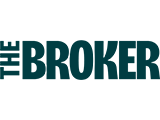The Dutch government is investing in a sound knowledge base for its policy on aid, trade and investments. It is doing so strategically and focused on the development policy priorities. Besides aiming to strengthen the impact on development, stability and poverty reduction it will also add to a coherent profile of the Dutch knowledge base. Investing in knowledge is key for development and growth. We might have something to offer and share, considering that the Netherlands is eighth on the World Economic Forum’s international ranking for knowledge economies, and fourth on the World Bank’s Knowledge Economy Index.
The Ministry of Foreign Affairs considers investments in knowledge crucial to further research and innovation as well as to a better sharing of existing knowledge for aid, trade and investment. To achieve this, the knowledge policy aims to a) provide a solid base for and reflection on development policy and implementation, including publicly funded interventions, innovation and development impact, b) build the capacity of research institutions in developing countries, improve access to existing knowledge in these countries, and expand North-South collaboration among knowledge institutions, and c) strengthen Dutch institutional learning.
The five knowledge platforms are an important tool for this policy (web page available in Dutch) as are the top sectors. In addition, the Ministry provides scholarship programmes for developing country students and professionals. Moreover, The Netherlands is working on free access to information on aid activities, including development research, and it is investing in better access to knowledge and technology protected by intellectual property rights for low and middle-income countries.
* Information on a public consultation on this knowledge policy of the Ministry of Foreign Affairs held at the end of 2011, can be found on the website of The Broker.

Comments are closed